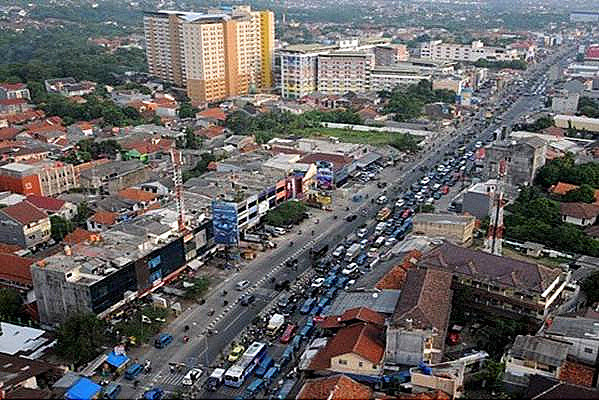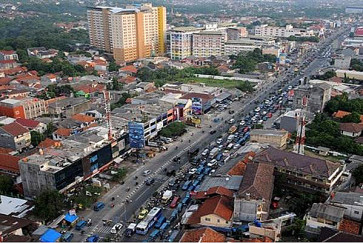Popular Reads
Top Results
Can't find what you're looking for?
View all search resultsPopular Reads
Top Results
Can't find what you're looking for?
View all search resultsBelanda Depok: Can the past be manipulated?
The truth of the matter is that the Depok city government has not only neglected historical sites in the city, it is also engaging in “the politics of memory”.
Change text size
Gift Premium Articles
to Anyone
H
ave you ever had an argument with a spouse, sibling or friend about how things went – e.g. the sequence of events, who said or did what – in the distant or even in the recent past? I would be very surprised if you have not. Not only do people have different perceptions, memories (famously elusive!), but sometimes, events and facts can be deliberately negated, revised or distorted for personal, material or political gain.
So the answer to the question in the title of my column is, it most certainly can! In fact, all of history is about the “interpretation” (sic!) of the past to benefit those who are the winners, vanquishers, and conquerors and to maintain the power of those who rule.
Historical negationism, sometimes called denialism or revisionism, is basically lying about what actually happened. Examples abound: in the United States (e.g. Confederate revisionism, California genocide), war crimes (e.g. resulting from Japanese imperialism, Croatian war crimes during World War II, Serbian war crimes both during World War II and the Yugoslav wars, Turkey and the Armenian genocide), Iran against religious minorities, and many others.
As someone who lived through 32 years of the New Order (1966-1998) under then president Soeharto, I and the majority of the populace had to live under our authoritarian rulers’ version of events: of the communist coup (which was actually an internal military struggle), of the “brutality” of the communists (there wouldn’t be some projection going on here, would there?), and the fatal stigmatization of those branded PKI (communists) which affected not just them, but also their families for generations to come. In short, historical manipulation traumatizes, destroys lives and kills. Between 500,000 and 1 million were the initial estimates of the mass killings in 1965-1966, but more recent ones go as high as 2 to 3 million.
Recently I came across another example of historical manipulation in my own backyard, Depok, following the sudden death of Ferdy Jonathan, 66, an elder of the so-called Belanda Depok, on Nov. 22.
Belanda means Dutch, while Depok is the name of a city in West Java adjacent to Jakarta. It implies that these are Dutch people living in Depok, but it is a misnomer. They are actually a multiethnic group of Indonesians – from Java, Bali, Sulawesi and Maluku and other areas – who are the descendants of the 150-200 slaves owned by Cornelis Chastelein, a high-ranking official of the Dutch East India Company (VOC) who owned estates in the Batavian (the old name for Jakarta) hinterlands.
Chastelein dreamed of creating a self-sustaining Christian community in that area, which was predominantly a Muslim stronghold. When he died in 1714, “he freed most of his slaves, and bequeathed those who had embraced Christianity, his 1,244-hectare Depok estate in ‘collective ownership’”. I read about this in a book published in August called The Christian Slaves of Depok: A Colonial Tale Unravels by Nonja Peters about the little known history of the Belanda Depok.



















